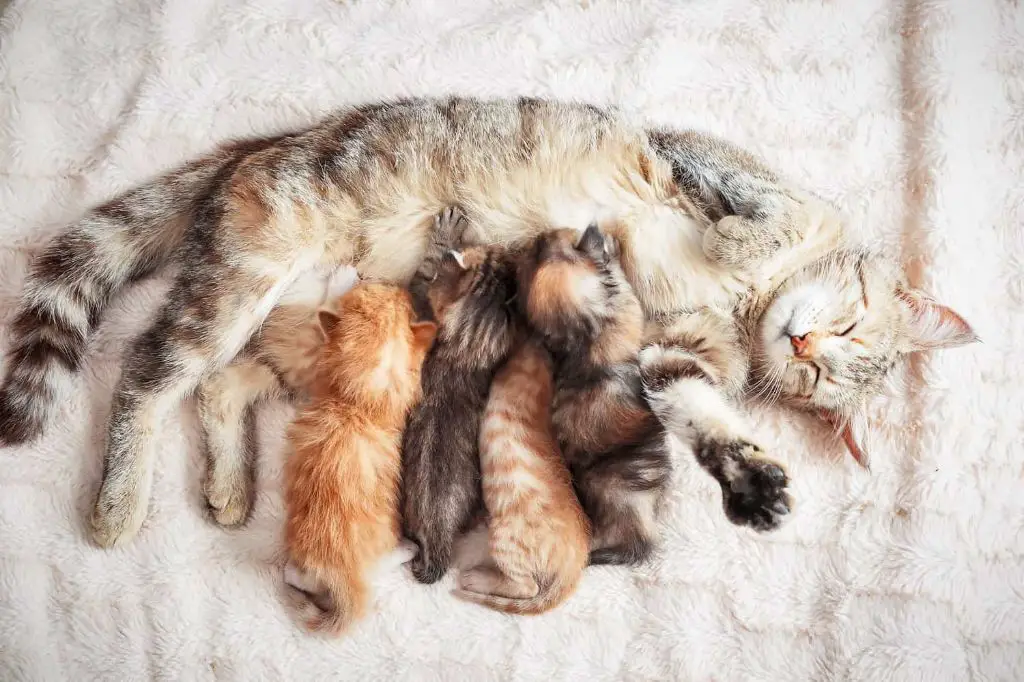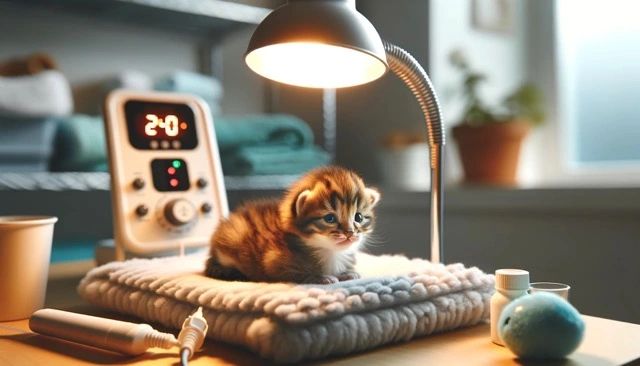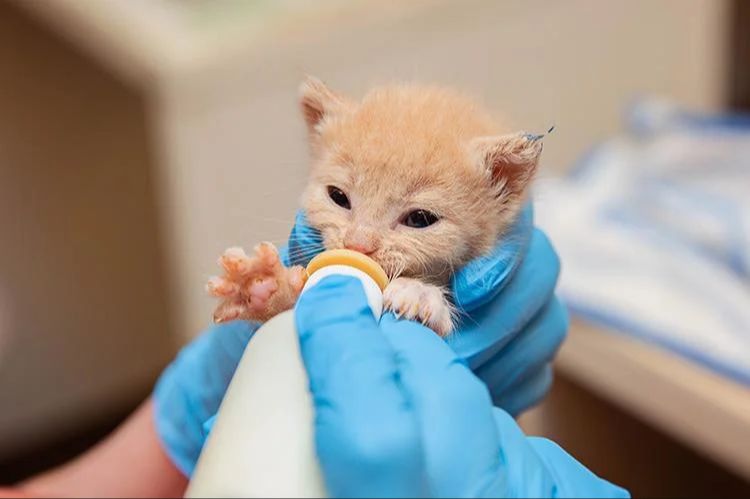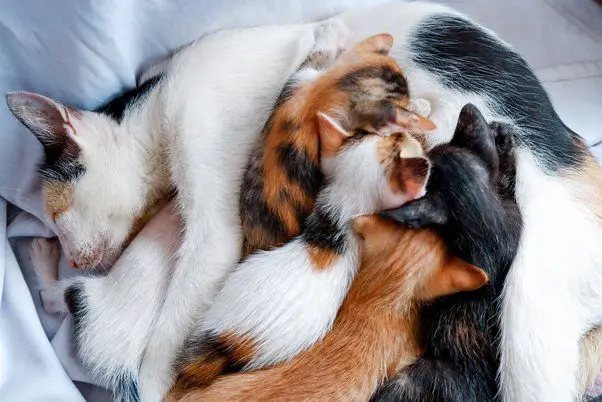Do Cat Mothers Really Abandon Their Kittens?
Nothing tugs at the heartstrings quite like seeing a tiny, helpless kitten left to fend for itself. It seems unthinkable that a mother cat could abandon her own babies. Yet sadly, kitten abandonment does occur in the feline world. Understanding the reasons behind it can help cat owners better care for a mother cat and her litter.
In this article, we’ll explore the facts around kitten abandonment. We’ll look at the myths versus the realities, the signs to watch for, and what to do if you find an abandoned litter. With knowledge and preparation, caring cat owners can help mother cats continue bonding with their kittens.
Reasons For Abandonment
There are several reasons why a mother cat may abandon her kittens, including illness, stress, lack of resources, and human interference.
Illness is a major cause of abandonment. If the mother cat is sick herself, she may lack the strength and energy to properly care for her kittens. Common illnesses like upper respiratory infections can prevent her from nursing and attending to the kittens. In some cases, severely ill cats may abandon the kittens intentionally to increase their chances of survival.
Stress can also lead a mother cat to reject her litter. The birthing process itself is stressful. If the mother cat lacks a quiet, comfortable, and safe nesting area away from noise, children, other pets, etc., it can overwhelm her maternal instincts. Traumatic events or changes in environment may also trigger abandonment.
Lack of resources is another factor. Mother cats need adequate nutrition and hydration to produce milk and care for newborn kittens. If food, water, and shelter are scarce in her environment, she may be unable to properly feed the litter. Large litters with many mouths to feed could also strain a nursing mother’s resources.

Finally, well-meaning but improper human interference is often a cause of abandonment. If humans handle the kittens too much against the mother’s wishes, especially shortly after birth, it can distress the mother cat and lead her to abandon them. Removing kittens from the nest prematurely is another common mistake.
Myths vs Facts
There are some common myths and misconceptions regarding mother cats abandoning their kittens. It’s important to understand the facts.
One myth is that if humans touch newborn kittens, the mother will reject or abandon them. The facts show this is very unlikely. According to Catster, mother cats are unlikely to reject kittens that have been handled by people. However, it’s still best to avoid unnecessary handling to reduce risk.
Another myth is that mother cats often abandon the weaker or smaller kittens in a litter. The truth is that it is uncommon for a mother to selectively abandon specific kittens. More often, if she abandons the litter it will be the entire litter, not singling out individuals. Abandonment of individuals is very rare per CatTime.
The facts show that complete abandonment of litters is actually uncommon in mother cats. While there are some reasons it may happen, maternal abandonment is relatively rare if the mother cat is healthy and in a safe environment.
When Abandonment Happens
The most vulnerable time for kittens is in the first few days after birth. Mother cats may abandon newborn kittens if the birthing area feels unsafe, if she is unable to nurse due to health issues, or if the kittens seem weak, disabled, or ill.
According to one source, “The mother cat is instinctively driven to nurture her kittens after birth. If she seems to abandon them at this stage, there is usually a reason why. She may reject kittens that seem too weak or sickly to survive” (Source).
Stress, loud noises, too much human interference, or an unsafe environment can also cause a mother to abandon newborns before they are able to care for themselves.
Signs of Abandonment
There are a few key signs that indicate a mother cat may have abandoned her kittens:
No Nursing: If the kittens are constantly crying and meowing, it likely means the mother is not coming around to nurse them. Healthy kittens will nurse regularly when the mother is caring for them.
Cold Kittens: Young kittens rely on their mother cat’s body heat to keep warm. If the kittens feel cold to the touch, it could be a sign they’ve been abandoned. Kittens rely on their mother for warmth. Rejected kittens will lose body heat rapidly.
No Grooming: Mother cats keep kittens clean by licking and grooming them. Abandoned kittens may have soiled fur and appear dirty without their mother’s care.
Overall, constant crying combined with cold, unkempt kittens are clear signs the mother cat is not returning to care for them.
What To Do
If you find abandoned newborn kittens, the most important first step is to bring them indoors and out of the elements. Kittens cannot regulate their body temperature well, so they will get cold very quickly without their mother or a heat source. Gently pick up the kittens and place them in a box or carrier with soft bedding. Get them into a warm room as soon as possible.
The kittens will need an external heat source to help maintain their body temperature. You can use a heating pad set on low under half of the box, or a hot water bottle wrapped in a towel. Make sure the kittens can move away from the heat source if they get too warm. The ideal temperature for newborn kittens is 85-90 degrees Fahrenheit.
Consult your veterinarian as soon as possible. Let them know you have found abandoned newborn kittens without a mother. The vet will be able to assess their health, estimate their age, and provide guidance on proper care and feeding.
Here are some additional resources on caring for abandoned newborn kittens:

[https://www.spca.com/en/orphaned-kittens-what-to-do/]
[https://kittenrescue.org/2017/03/raising-orphaned-kittens/]
Caring for Abandoned Kittens
Caring for abandoned newborn kittens requires round-the-clock care and attention. Very young kittens under 4 weeks old cannot regulate their own body temperature or go to the bathroom on their own. Some key aspects of caring for abandoned kittens include:
Feeding: Newborn kittens need to be bottle fed kitten milk replacer formula every 2-4 hours. The formula should be warmed to around 100 degrees F. Make sure to feed slowly and allow time for burping/digestion between feedings. As kittens get older, around 3-4 weeks, you can introduce soaked kitten chow. [1]
Stimulating: Kittens under 4 weeks cannot urinate or defecate on their own, so you’ll need to gently stimulate their genital/anal areas with a warm, damp cloth or cotton ball after feedings to help them go to the bathroom. This mimics the mother’s tongue grooming. [2]
Keeping Warm: Kittens have difficulty regulating their body temperature. Keep them in a warm, draft-free area. You can use a heating pad on low or a snuggle safe disc warmed in the microwave. Make sure kittens have soft bedding and do not overheat. Monitor their temperature often.
Caring for abandoned kittens is extremely hands on but can be very rewarding. Be sure to work closely with a veterinarian and do your research to give orphaned kittens the best chance at survival.
Fostering Abandoned Kittens
Fostering abandoned kittens is a rewarding way to help save lives. Taking in a litter requires preparation and commitment. The first step is contacting your local animal shelter to sign up as a foster parent. Shelters often have foster programs and appreciate volunteers who open their homes to orphaned kittens (Fostering 101, n.d.).

When you take in a litter, be prepared to provide round-the-clock care. Kittens under 4 weeks old need bottle feeding every 2-3 hours. As they grow, the feeding schedule can be reduced to 4-5 times a day. Make sure to have supplies like formula, bottles, warming disks, and scales on hand (Kitten foster manual, n.d.).
Equally important is finding permanent homes once kittens are weaned and litter trained. Promoting the kittens on social media and adoption sites helps match them with loving families. Screen potential adopters to ensure good fits. With dedication and patience, foster parents can save entire litters and prepare them for their forever homes.
Preventing Abandonment
There are steps cat owners can take to help prevent a mother cat from abandoning her kittens. The most important is providing a quiet, safe, and comfortable environment for the cat to give birth and nurse her kittens. This means keeping her in a room away from other pets, children, and loud noises. Provide a nesting box with soft bedding so she has a dedicated space for nursing. Limit stress by keeping her routine consistent and allowing minimal disruptions (source).
It’s also crucial to monitor the mother cat and kittens closely in the first days after birth. Make sure each kitten is nursing and gaining weight normally. Have the mother cat examined by a vet 24-48 hours after delivery to ensure no post-birth complications. Routinely take the kittens to a vet for checkups as well. Addressing any health issues quickly can prevent abandonment (source).
Overall, by providing attentive care and minimizing stress for the cat, cat owners can help prevent tragic abandonment situations. However, even with the best preparations, abandonment sometimes still occurs due to factors beyond human control. If that happens, focus on caring for the kittens and determining next steps with a vet’s guidance.
Conclusion
In summary, while cat abandonment does occur, it is relatively rare and often happens due to extreme circumstances. Health issues, inexperience, and environmental stressors are the most common reasons a mother cat may abandon her kittens. However, with proper care and intervention, many abandoned kittens can be rescued and go on to live healthy, happy lives. The key takeaways are:
- Abandonment usually only happens when the mother cat is unwell or in a highly stressful situation.
- There are warning signs to look out for like crying kittens, a lack of nursing, or a mother cat moving the kittens repeatedly.
- If you find abandoned kittens, immediate vet care and proper feeding/warmth are crucial.
- Fostering abandoned kittens requires round-the-clock care but can be very rewarding.
- Spaying/neutering cats can help prevent accidental litters at risk of abandonment.

While sad, kitten abandonment is fairly uncommon and does not mean a mother cat is uncaring. With prompt action and dedicated foster parents, orphaned kittens can thrive and live full, healthy lives.

